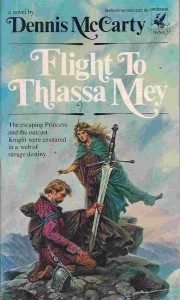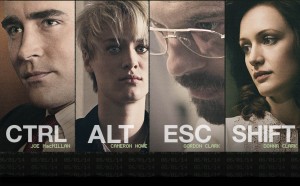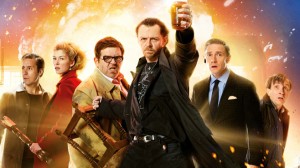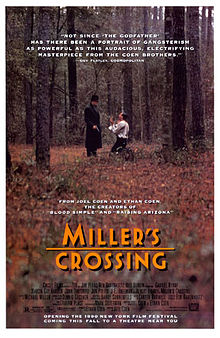
Kitty Pride Indeed
Let’s say you have a time machine. What would you change? Let’s say, for the sake of argument, that you would go back in time and buy me a drink that one time when you refused to buy me a drink because I kept mispronouncing your name and then braying like a donkey, clearly implying that I knew I was mispronouncing your name. But looking back you realize I deserved that drink, and because I was sober I went on a rampage of writing novels and you hate to see me successful, so you figure: I’ll go back and buy him a drink and he’ll get drunk and step in front of a bus and die.
Don’t worry. It’s a common desire. I get that a lot.
So, you acquire a time machine via Dark Arts or Black Ops or what have you. How do you go about putting this plan into motion? Do you
A. Set the controls for the evening we were together, walk into the place just as Past You heads for the bathroom, and do the deed? or
B. Set the controls for the day I was conceived and totally cock-block my Dad? or
C. Set the controls for a week earlier and spend your time moving objects and leaving notes for friends and family, subtly arranging them like pieces on a board to ensure that Past You doesn’t make it to the bar that evening so you can impersonate yourself, and then put more work hours into making certain that my favorite liquor is stocked behind the bar, and then even more work into several side projects, including releasing a dangerous gorilla from the zoo to terrorize the neighborhood so the bar won’t be too crowded, except I have a deadly fear of gorillas and so now Past Me isn’t coming to the bar, and you have to reveal yourself to Past You and team up to kidnap me and literally pour booze down my throat, accidentally burning down Hoboken, NJ in the process?
If you chose “C,” you may be Jane Goldman, Simon Kinberg, or Matthew Vaughn, the people who wrote X-Men: Days of Future Past. SPOILERS HO.
Sweet Jesus, I’m an Asshole
So, time travel movies tend to be ridiculous. Here’s a Pro Tip: Time Travel is not magic. It’s not supposed to be magic, at least – it’s supposed to be a manipulation of a measurable aspect of our physical world. As a result, they should have what we professional thinkers call “internal logic.” The rest of the world calls this making any damn sense.
XMDOFP Makes a valiant attempt to make some damn sense. The method of time travel is the typical mumbo-jumbo, but at least avoids someone actually building a time machine in favor of mental gymnastics, which has a nice simplicity to it, in my opinion. The basic premise is this: In 1973 Mystique (Jennifer Lawrence) assassinates a scientist/industrialist, setting in motion a present-day where the world has been destroyed by “Sentinels” that hunt anyone with even a single mutant gene. On the verge of being exterminated, the final remaining mutants gather to send Wolverine (Hugh Jackman, whose arms and chest are a special effect that made me doubt my sexual orientation) back to his body in 1973 to stop her. To do so, they decide he must find Professor X (Patrick Stewart/James McAvoy) and Magneto (Ian McKellan/Michale Fassbender) to persuade her not to kill her target.
So, let’s run this through the insanity machine: On the one hand, you have the entire world destroyed an enslaved by horrible Sentinels. Weighed against that is the single mutant who causes the chain reaction in the first place. Solution: Kill Mystique, preferably a few years before 1973. Film over within ten minutes, the rest of the running time is Jackman doing one-handed push-ups while the rest of the cast cheers.
But no, they decide that despite the fact that the entire world destroyed an enslaved by horrible Sentinels Mystique, the woman who unknowingly caused this awful future, is far too important to kill. So they decide to spend a few days trying to track her down and convince her to not exact vengeance on this man. And for some reason, for some unknowable reason, they send Wolverine back to just a few days before her terrible act.
Wait. Why?
You are sending him back in time. For fuck’s sake, send him a few months back, give him some room to operate. Okay, to be fair, the implication is that he’s only back in his 1973 body for as long as Kitty Pride is actively manipulating him with her mutant powers, so the idea that she could do that for months is probably crazy. Except of course that she does do it for several days, because in 1973 Wolverine travels around quite a bit, and a lot of plot happens, and so we must assume Kitty pride knelt there holding her hands over Wolverine’s head for two, maybe four days. Without eating or drinking. Or bathroom breaks. Sure. Why not.
Okay! So maybe they had to send him back with just days to spare. Stipulated. I may have been drunk while watching this movie anyway. But! Here is the next complicating factor: Despite having just a few days to accomplish this goal, they spend a great deal of time breaking young Magneto out of his plastic prison. Because Old Magneto, despite knowing for a fact that he was a complete asshole back in 1973, insisted he would be necessary to convince Mystique. Which proves to be completely untrue, and it doesn’t matter anyway because Magneto immediately begins acting like the complete asshole he was in 1973.
In other words, if Old Magneto had said: Hey, listen, I was kind of a jerk back then and probably wouldn’t help you, better leave me out of it, the movie’s forty minutes long and the rest of the running time is spent giving Halle Berry a reason to be in the movie in the first place.
Man, I’m not, you know, Magneto-old. He appears to be 40 in 1973, so that makes Sir Ian McKellan 80 years old, which is … about right. In 1973 I was 2. But I can remember, for example, what kind of jerkass I was when I was 18. If you time-traveled back to when I was 18 and asked me to do anything that inconvenienced me in the least, I would yawn and pretend to be asleep. I know this. So if we were hatching plans to save the world that involved time-traveling back to me at 18 and getting my help, I would raise my hand and say guys – bad idea. I was kind of an asshole back then.
You know, instead of producing a plot thread that exists solely to expand the story to an appropriate film-length.
We won’t even get into the fact that Wolverine drowns, except doesn’t, and then magically wakes up in a shiny new future with no memory of the previous 40 years … for some unknowable reason. The metaphysics in this movie? not so hot. Sure, the movie’s fun. It also takes itself a little too seriously, and has an enormous number of continuity problems just with the other films. But Quicksilver was fun. I love that guy.










